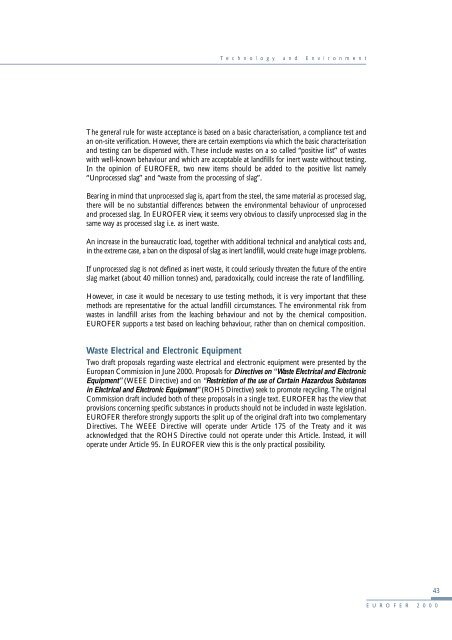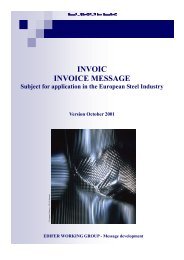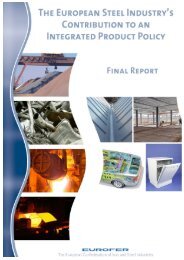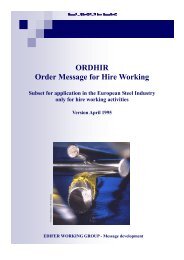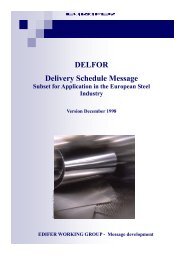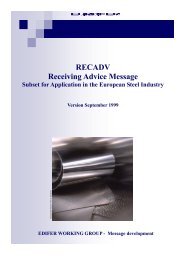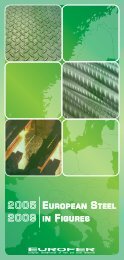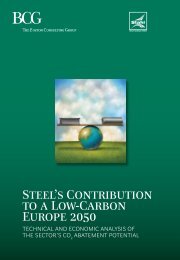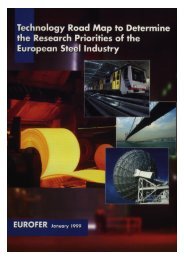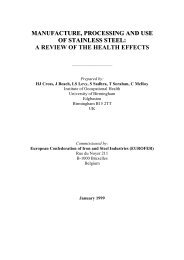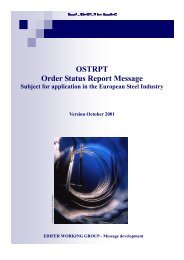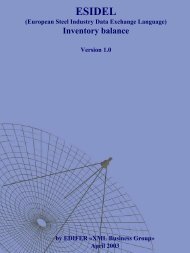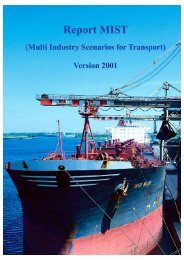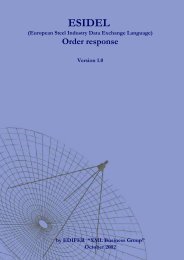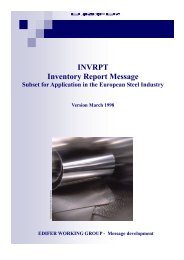Imports - Eurofer
Imports - Eurofer
Imports - Eurofer
Create successful ePaper yourself
Turn your PDF publications into a flip-book with our unique Google optimized e-Paper software.
T e c h n o l o g y a n d E n v i r o n m e n t<br />
The general rule for waste acceptance is based on a basic characterisation, a compliance test and<br />
an on-site verification. However, there are certain exemptions via which the basic characterisation<br />
and testing can be dispensed with. These include wastes on a so called “positive list” of wastes<br />
with well-known behaviour and which are acceptable at landfills for inert waste without testing.<br />
In the opinion of EUROFER, two new items should be added to the positive list namely<br />
“Unprocessed slag” and “waste from the processing of slag”.<br />
Bearing in mind that unprocessed slag is, apart from the steel, the same material as processed slag,<br />
there will be no substantial differences between the environmental behaviour of unprocessed<br />
and processed slag. In EUROFER view, it seems very obvious to classify unprocessed slag in the<br />
same way as processed slag i.e. as inert waste.<br />
An increase in the bureaucratic load, together with additional technical and analytical costs and,<br />
in the extreme case, a ban on the disposal of slag as inert landfill, would create huge image problems.<br />
If unprocessed slag is not defined as inert waste, it could seriously threaten the future of the entire<br />
slag market (about 40 million tonnes) and, paradoxically, could increase the rate of landfilling.<br />
However, in case it would be necessary to use testing methods, it is very important that these<br />
methods are representative for the actual landfill circumstances. The environmental risk from<br />
wastes in landfill arises from the leaching behaviour and not by the chemical composition.<br />
EUROFER supports a test based on leaching behaviour, rather than on chemical composition.<br />
Waste Electrical and Electronic Equipment<br />
Two draft proposals regarding waste electrical and electronic equipment were presented by the<br />
European Commission in June 2000. Proposals for Directives on “Waste Electrical and Electronic<br />
Equipment” (WEEE Directive) and on “Restriction of the use of Certain Hazardous Substances<br />
in Electrical and Electronic Equipment” (ROHS Directive) seek to promote recycling. The original<br />
Commission draft included both of these proposals in a single text. EUROFER has the view that<br />
provisions concerning specific substances in products should not be included in waste legislation.<br />
EUROFER therefore strongly supports the split up of the original draft into two complementary<br />
Directives. The WEEE Directive will operate under Article 175 of the Treaty and it was<br />
acknowledged that the ROHS Directive could not operate under this Article. Instead, it will<br />
operate under Article 95. In EUROFER view this is the only practical possibility.<br />
43<br />
E U R O F E R 2 0 0 0


